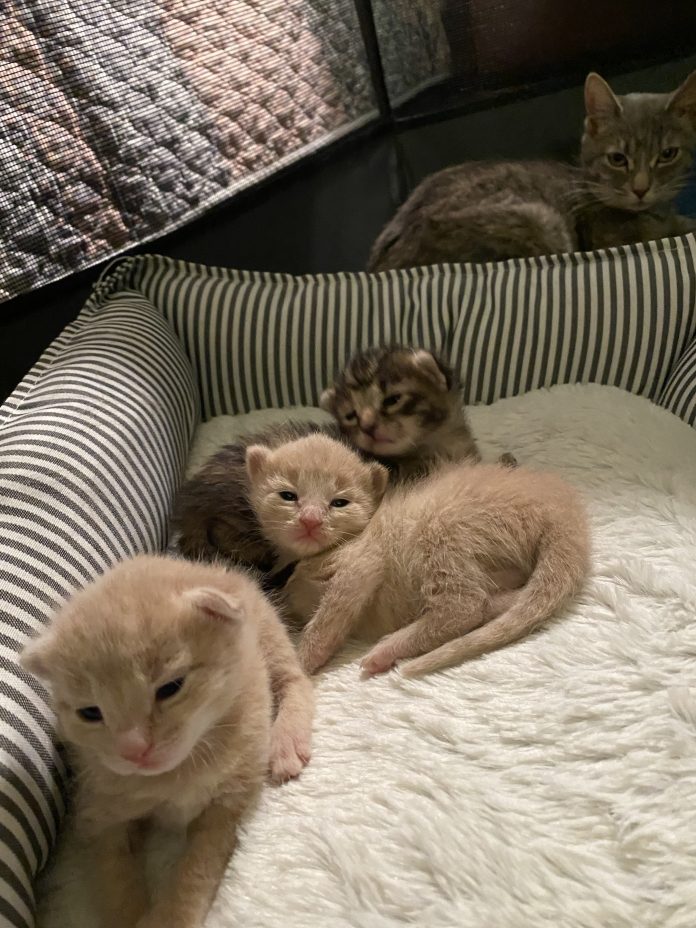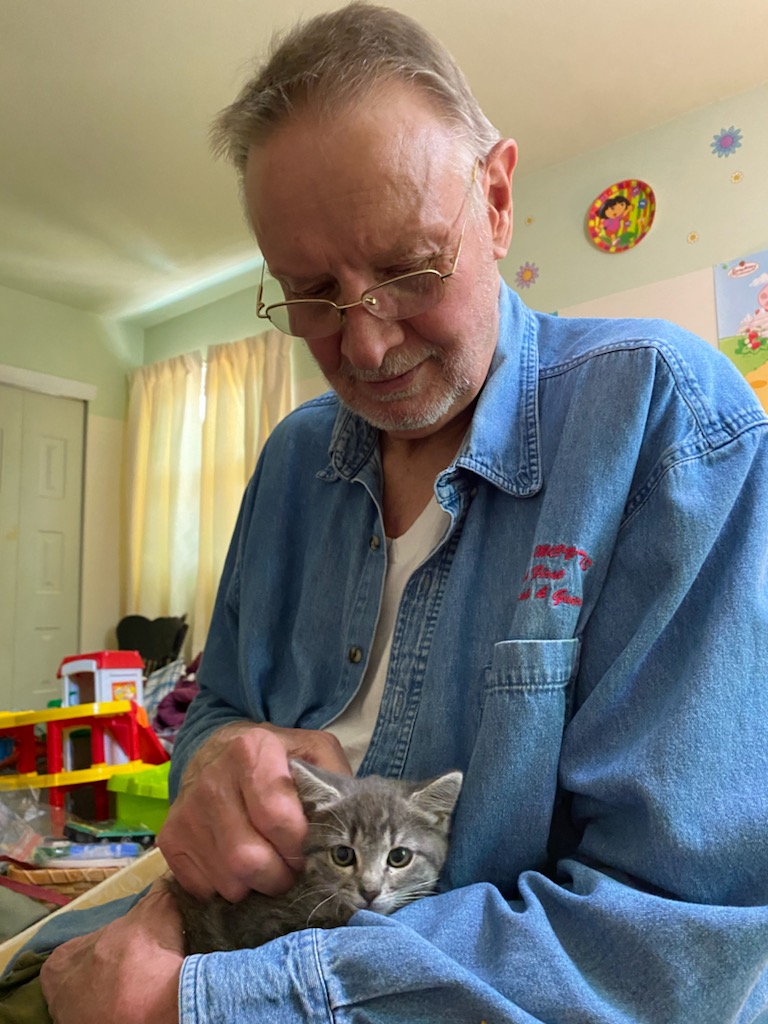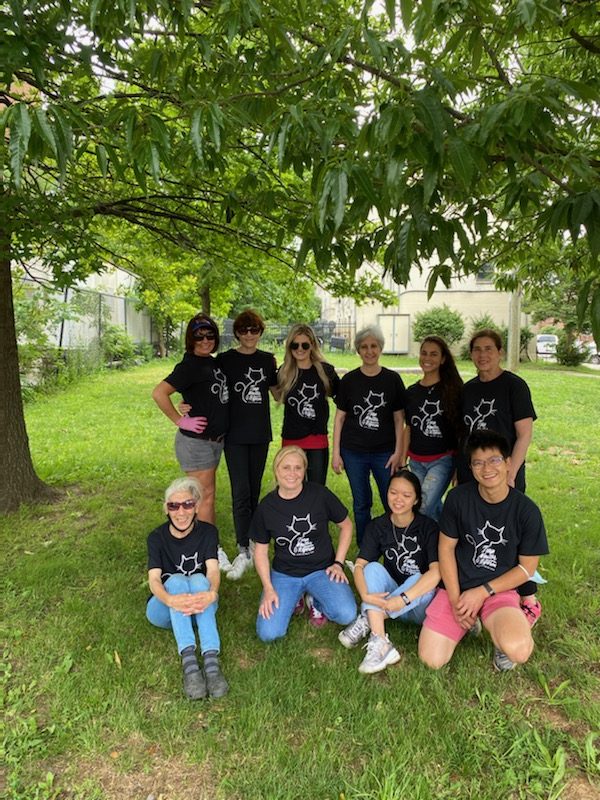By Isabella DiAmore
Northeast Times
The city of Philadelphia and the state of New Jersey have more than 1 million stray and feral cats roaming the community, and due to COVID shutdowns, the number of strays has drastically increased, according to Karen O’Rourke, president of Stray Cat Relief Fund.
Stray Cat Relief Fund, a nonprofit based out of South Philadelphia, offers guidance to provide trap-neuter-return techniques, as well as medical attention, foster homes and adoption services for cats in the Southeastern Pennsylvania and New Jersey areas.
“The first year we started, we helped, like, 43 cats,” O’Rourke recalled. “This year, we will be probably over 1,000 cats and kittens.”
TNR is the humane and effective approach for stray and feral cats, who are humanely trapped and taken to a veterinarian to be neutered and vaccinated. After recovery, the cats are returned to their home — their colony — outdoors, Alley Cat Allies reported.
Stray Cat emphasizes a “no kill” environment, which is why it recommends if community members do find a stray in their backyard, to call their local animal shelter or email the fund directly for assistance on trapping, O’Rourke explained.
“When you have had a kitten die in your hands, take its last breath, because we got to that kitten too late, that’s what keeps me motivated to continue this mission,” she added. “We try to TNR as many cats as possible and try to rescue the cats that are abandoned.”
When Bob Freer found a mama cat and her litter of kittens in his backyard last year, he reached out on the community app NextDoor to see what kind of trap he should use.
“One of the people that responded to me was Susan Kates from Stray Cat Relief,” Freer recalled. “She said, ‘I work with Stray Cat Relief. This person I work with will come out and will help you,’ so I was all set up with the trap.”
On one early morning, two volunteer members from Stray Cat came to Freer’s house to help trap the cat and kittens. They used a drop box trap, allowing Freer to determine when to spring the manually operated device and leave no harm.
After catching the kittens and cat, the organization provided Freer with the resources for having the kittens spayed and neutered. The nonprofit is partnered with a variety of animal hospitals like Ryan Veterinary Hospital at the University of Pennsylvania and Mt. Laurel Animal Hospital.
“We offer everything we can and we really put in the utmost degree of whatever we need to do for this animal,” O’Rourke said. “We try our best and it’s sometimes not enough.”
Freer then decided to foster the two wild kittens who he said brought him joy and comfort in his home.
“It’s like a journey every single day; I would see another success from my point of view,” Freer said. “The first time I held them, the first time they didn’t run away and hide instantly. There’s been a progression.”
O’Rourke was grateful to find someone like Freer to become a foster parent, but not all calls lead to fostering or adopting a stray. Depending on a feline’s health, part of TNR is releasing the stray back into its colony after it is vaccinated, neutered or spayed and microchipped, a tool to identify the owner.
During the last year, shelter space was filled to maximum capacity because of the increase in community cats and owners returning their feline back to the shelter.
“If somebody wants to foster, but they don’t have the financial means to buy the food or litter, we’ll supply all that,” O’Rourke said. “We’re so grateful if someone’s willing to foster.”
Stray Cat does not have a physical shelter facility and relies solely on a foster network community to take care of its kittens, prior to the strays getting adopted.
Those who wish to become foster parents can directly fill out an application on the fund’s website. Eligible fosters should maintain daily care for animals, a clean living environment and transportation for appointments.
Adoptable kitten and cat applications can also be found through the website.
As for funding, Stray Cat is a donation-based program, and the 11 board members hold fundraising events so they can continue to provide the necessary resources for community cats.
TNR costs about $50 to $60 per cat. The overall cost can go up to $600 for a feline to be spayed or neutered, vaccinated and sheltered.
Even though O’Rourke can apply for state and federal grants, there is no guarantee Stray Cat will receive the funds each year, but she uses those challenges to drive her continued push for change, she said.
“We have about 96 cats and kittens in our rescue currently that are in foster homes,” O’Rourke said. “We’re such a small group and we’re so inundated every day, and we want to help everyone. Every email that gets delivered from our rescue makes me crazy if it doesn’t get answered within a 24-hour period.”
The program started in 2010 with volunteers managing a 100-cat colony in South Philadelphia. O’Rourke, who works a full-time job as a project manager, joined Stray Cat in 2015 after fostering kittens for a different organization. Although her mission is to continue to protect cats roaming the streets, O’Rourke hopes one day Philadelphia and New Jersey counties will all have TNR ordinances created in their community.
“Before I die, I want to get in front of government, city officials, and just let them hear the stories and create change,” O’Rourke noted. “If we could do it at that level and really make a difference, we could change the landscape for the community cats.”
By the end of the summer, O’Rourke plans to open an adoption center at BarkPark Salon, 1715 McKean St. The owner, Katherine Wade, is also a board member for SCRF.
Looking to foster or adopt a kitten? Go to https://straycatrelieffund.org/ for more information. ••








